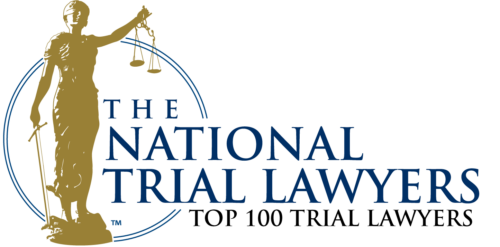If you are injured in a motorcycle accident, you will incur medical expenses. These expenses could range from ambulance service, hospital costs, and ongoing medical treatment. The severity of many motorcycle injuries often results in high medical costs. If your medical insurance covers these expenses, you still could be required to cover co-pays and deductibles. Furthermore, medical insurance will not cover all your damages, such as lost income. Relying on medical insurance might not be your best option. The Philadelphia motorcycle accident attorney at the Reiff Law Firm discusses this in detail below.
What Does Medical Insurance Cover After a Motorcycle Accident in Pennsylvania?
Medical insurance is unlikely to cover all your medical expenses following a devastating motorcycle accident. In addition to any deductibles or co-pays you are responsible for, insurance companies will have to approve your post-accident medical treatments, including occupational or physical therapy, long-term in-home care, or other treatments. When you are recovering from a severe injury, you do not want to deal with additional expenses and uncooperative insurance providers. In many cases, a motorcycle accident could result in costly healthcare for years.
In addition to health insurance, a motorcyclist might be able to recover some costs through their homeowner’s, renter’s, or motorcycle insurance. However, these policies are not designed to provide you complete compensation after an injury. In cases where a motorcyclist is injured through the negligence of another driver, filing a personal injury lawsuit is often the best option to fully recover for all damages incurred. It is important to talk with our experienced Pennsylvania motorcycle accident lawyer to help estimate the full amount of your anticipated expenses.
Personal Injury Lawsuits vs. Medical Insurance Coverage for Motorcycle Accident Injuries in Pennsylvania
A motorcycle accident is likely to impact your life in more ways than just your physical injuries. A severe injury will not only require significant medical treatment; it will also adversely limit or restrict your ability to work. Additionally, there is the damage to your motorcycle to consider – medical insurance will not repair your bike.
As stated above, it is unlikely that your medical insurance will cover all your medical expenses. It will certainly not provide you any compensation for your lost wages or the pain and suffering, or any property damage caused by the accident.
Through a personal injury lawsuit, you could hold the at-fault driver responsible for your damages. An injured motorcyclist could seek compensation for any out-of-pocket payments made for insurance deductibles or co-pays. In most cases, it will also provide the financial means to get the appropriate medical procedures and physical therapy you require without the need to have an insurance company approve the treatment.
Medical insurance will not cover you for your pain and suffering. Through a lawsuit, an accident victim is entitled to be compensated for the physical pain and mental anguish they endured. This means you could recover for things such as anxiety, emotional distress, and the loss of the enjoyment of life. In many cases, a substantial part of an award is for pain and suffering.
You should talk to our Pennsylvania motorcycle accident attorneys about the types of damages you are entitled to recover. Understanding how to calculate your damages, including medical expenses, lost income, and other costs arising from your injury, is essential in knowing how to best proceed after a motorcycle accident.
In some cases, an insurance provider might offer you money to help offset your medical costs. This settlement might actually prohibit you from receiving the full compensation you deserve. Once you agree to a payment, then it is unlikely that you could file a subsequent lawsuit. Before accepting any offer, you should speak with our law office first.
Will My Motorcycle Insurance Help with Medical Bills After a Pennsylvania Motorcycle Accidents?
The Pennsylvania Motor Vehicle Financial Responsibility Law does not require insurance companies to provide medical coverage to people who have motorcycle insurance. This is dramatically different than the rules governing car insurance in Pennsylvania that require insurance companies to provide a minimum amount of medical coverage for drivers purchasing insurance.
The lack of medical coverage means that, after an accident, a motorcyclist must rely on their health coverage. While a motorcyclist could seek recovery from another driver’s insurance provider after an accident, there will likely be a disagreement regarding fault. It is crucial to have our experienced Pennsylvania motorcycle attorney working for you to help ensure your legal rights are protected.
Additionally, under Pennsylvania law, a victim in a motorcycle crash is entitled to “full tort” protection. Pennsylvania insurers offer “limited tort” coverage and “full tort” coverage for car insurance policies. Many drivers opt for “limited tort” because it lowers their monthly premiums. However, this type of policy typically prohibits recovery for pain and suffering.
“Limited tort” does not apply to motorcyclists in Pennsylvania. Because of the differences between motorcycle and automobile insurance coverages, it is essential to have our experienced Pennsylvania motorcycle accident attorney handling your case. Our office will work towards maximizing your total recovery.
Call Our Pennsylvania Motorcycle Accident Attorney for a Free Consultation
Motorcycle accidents often leave their victims facing a long physical recovery and lots of medical expenses. Unfortunately, while your health insurance might cover most of your costs, it will not cover them all. Because your insurance provider must approve treatment, you are facing an uphill battle. Our Philadelphia Personal Injury Attorneys will work with you to not only recover your medical expenses but other losses such as lost income and property damages. If you were injured in a motorcycle accident, contact the Reiff Law Firm at (215) 709-6940 to schedule a free consultation.
Related Posts
- What to Do if You Get into an Accident with a Private Ambulance in Pennsylvania
- What is Considered “Pain and Suffering” in Pennsylvania?
- What is the Statute of Limitations for Truck Accident Lawsuits?
- Can a Bystander Sue for Injury or Emotional Distress in Pennsylvania?
- When Can a Fatal Car Accident Be Treated as a Wrongful Death Case in PA?















